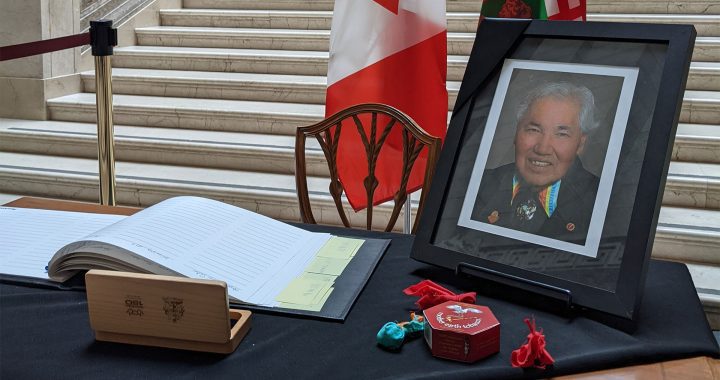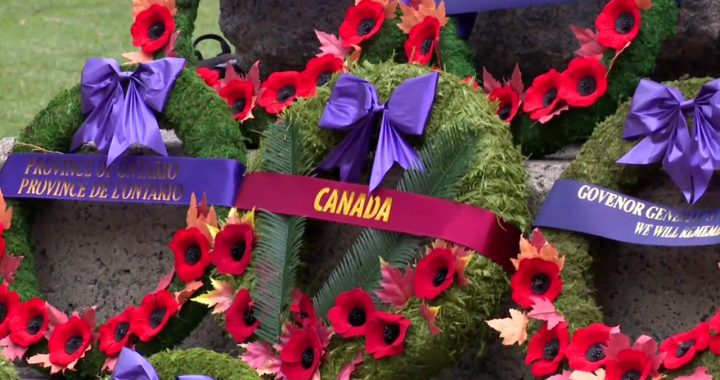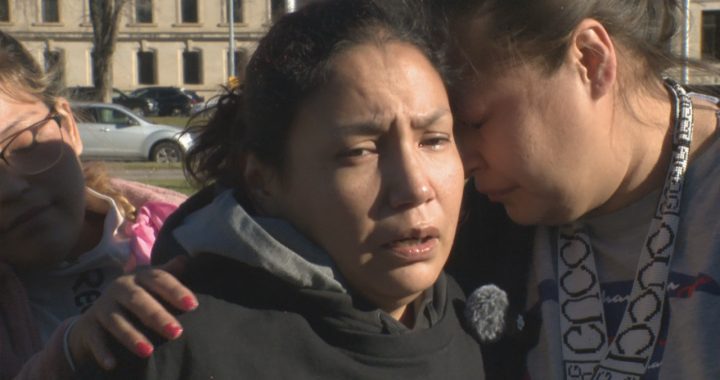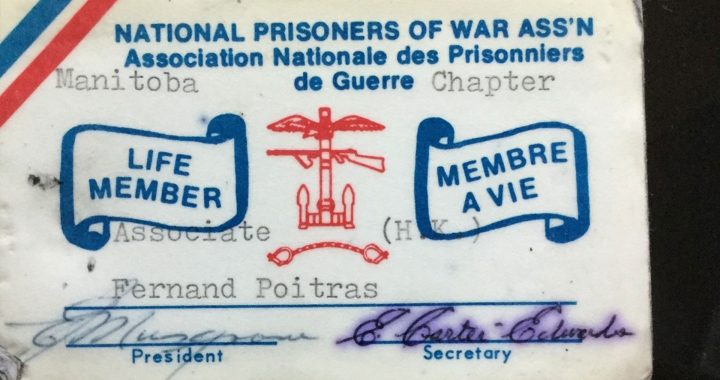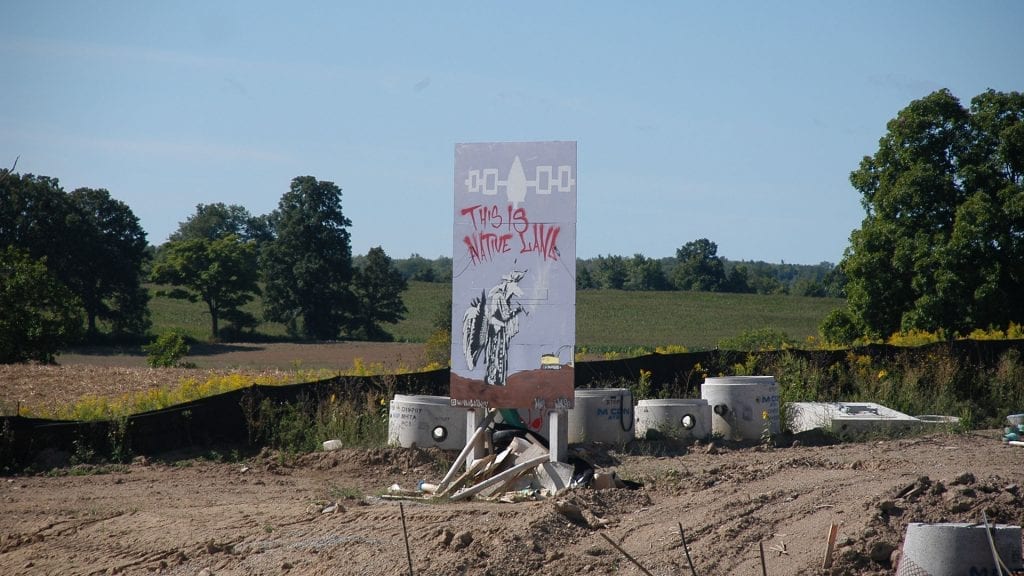
A painted-over sign on McKenzie Road reclaims the land as Haudenosaunee territory. The occupation started July 19, 2020. Photo: APTN
As a crumpled-up school bus with the words “land back” draped over it lay on rubble across the normally bustling main street in Caledonia, Ont., federal authorities in Ottawa fired off a “discussion paper” to their provincial counterparts in Toronto.
The November 2020 document laid out details for a proposed meeting between the Six Nations of the Grand River and the two crowns. It contained things like meeting objectives, considerations, a proposed agenda and potential issues that may arise during talks about land claims at the heart of the standoff at 1492 Land Back Lane.
Two months later, Ontario responded. “In general, Canada and Ontario appear to be aligned on most issues at the officials level,” federal employees wrote in internal government briefing documents obtained by APTN News. “It is understood that at an initial meeting presenting ‘red lines’ would not be productive.”
The key phrase was “at the officials level.” Joe Wild, federal senior assistant deputy minister, and Grant Wedge, provincial assistant deputy minister, were leading the files and met in January to co-ordinate. But, the documents explained, “it is unclear whether the views exchanged between Joe Wild and Grant Wedge reflect Ontario’s views at the Deputy Minister or Ministerial level.”
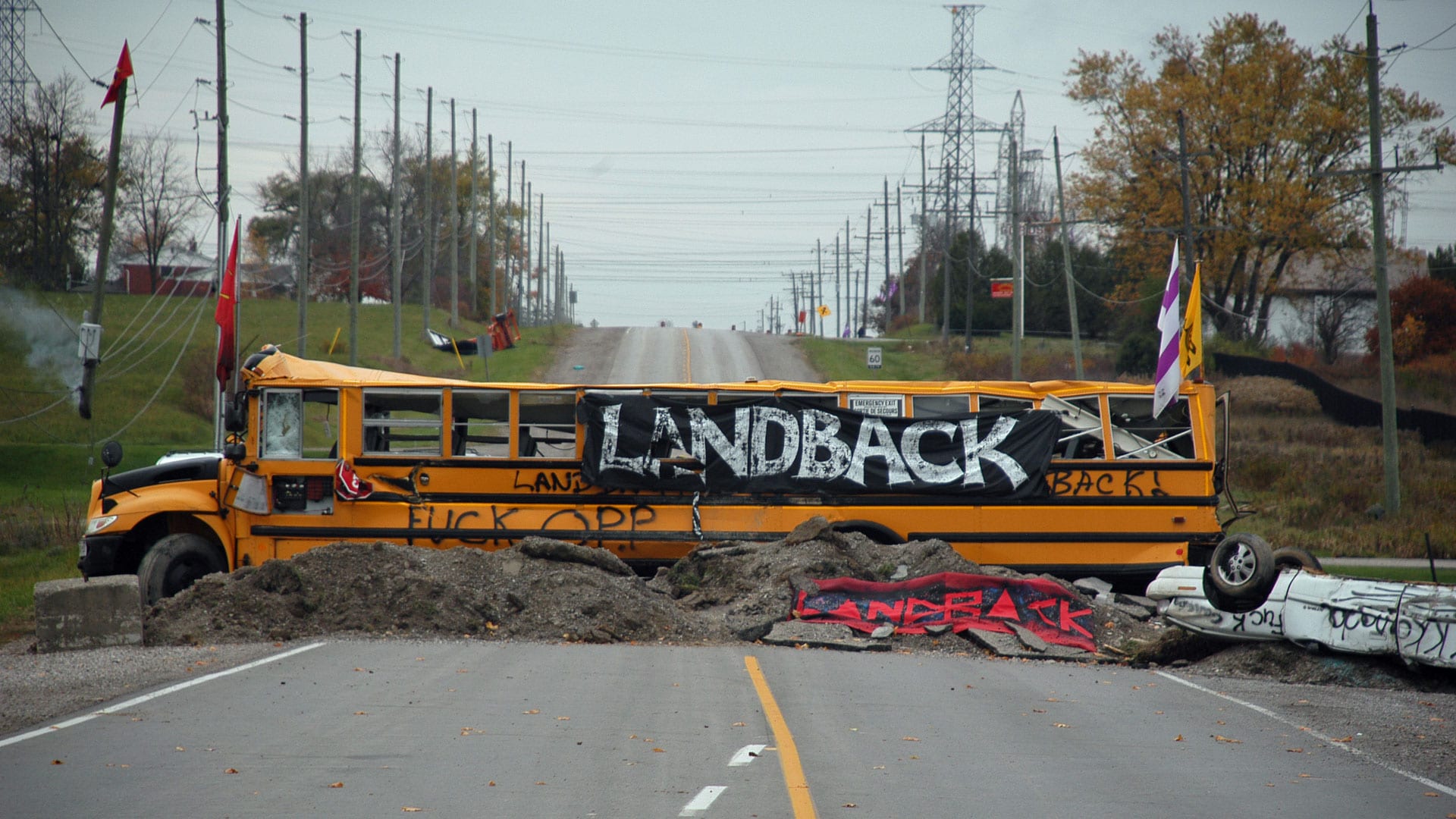
And so after two rounds of blockades, two permanent injunctions, a police raid, more than $16 million spent by police, intelligence gathering by Canada’s top spy agency, a class-action lawsuit and after first proposing the meeting in August, the people with the most power to quiet civil unrest in the small town south of Hamilton had done, essentially, nothing.
It took months for Ontario to respond to a “discussion paper” for a meeting that was only proposed, let alone planned. And it remained unclear in Ottawa whether the Ontario official’s responses, once they arrived, matched up with the views of his political and departmental masters.
Nor were difficulties co-ordinating governments limited to Queen’s Park and Parliament Hill, the documents show. Officials reported a series of meetings happening on Six Nations territory between the elected council, traditional chiefs and the land back group — who the documents refer to simply as “defenders.”
The documents noted “differing views” between traditional and elected leaders about whether the meeting should be public or private. “A meeting between the Crown and Six Nations is likely to be a number of weeks away,” said the Jan. 29 briefing note released to APTN under the Access to Information Act.
That was six months ago. It’s unclear if the meeting ever happened as the Canadian government didn’t reply to a request for comment.

Heavy policing, little progress
On this day last year, about a dozen people walked on to the 25-acre construction site of the proposed McKenzie Meadows subdivision on the southern edge of Caledonia’s urbanized area and dubbed it 1492 Land Back Lane.
The project was approved in 2003 but shelved in 2006 when a similar standoff happened nearby over the Douglas Creek Estates, now known as Kanonhstaton, or the Protected Place.
Foxgate Developments, a partnership between Losani Homes and Ballantry Homes, bought McKenzie Meadows in 2015. They soon received another permit from Haldimand County, signed a support agreement with elected council and started working.
Six Nations is the most populous reserve in the country, and its members overwhelmingly opposed the project during 2013 consultations. When hundreds of people rushed to support the land back camp during rumbles with Ontario Provincial Police (OPP), it appeared the opposition remained.
Officers twice shot at group members with stun guns and an anti-riot weapon commonly called a rubber bullet gun. And the group twice retaliated by blocking roads, stopping trains, lighting tire fires and targeting nearby infrastructure.
The first clash happened after the police riot squad, the Public Order Unit, raided the camp in August. The second happened after officers tried to arrest people who threw rocks at their cruiser the same day two injunctions were made permanent.

With a smoldering hydro post dangling near a trench dug across Argyle Street, the area looked almost like a war zone during blockades at the height of the dispute in late October.
But behind the barricades the mood was calm, collected and community focused. People spoke of their resistance in terms of the Great Law of Peace, the oral constitution of the Haudenosaunee Confederacy, which describes itself as the oldest participatory democracy in the world.
It was then the dispute drew attention from Ottawa’s top spy agency, the Canadian Security Intelligence Service. The agency, which investigates threats to national security, prepared a secret intelligence brief that laid out “notable concerns regarding critical infrastructure” on Nov. 26.
In that same month alone, the OPP spent $3.8 million on the McKenzie Meadows operation, or roughly $125,000 per day. APTN revealed these details through provincial and federal access to information requests.
The barricades came down for the second time February, but not before lawsuits were filed by businesses, residents and the developer accusing the OPP, Ontario and Canada of negligently bungling the situation.
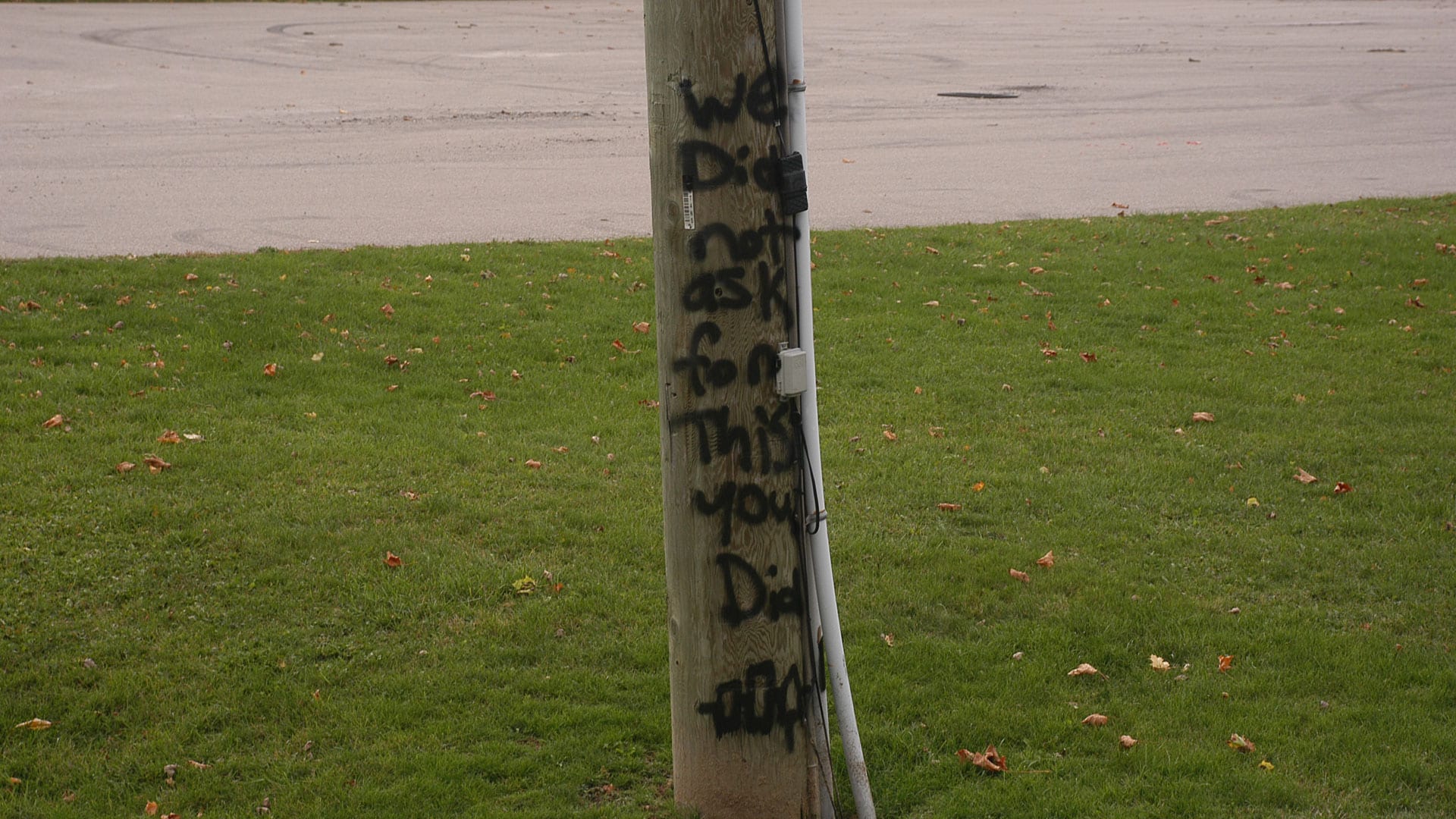
Another lawsuit filed in March
Throughout the year APTN obtained more than 1,000 pages of Ontario court documents. Among them were pieces of information such as Ottawa’s Aug. 19 letter offering to strike land talks and the developer’s private agreement signed with the elected council.
APTN obtained another lawsuit, whose details have been previously unreported, filed in March by a handful of residents who live in the formerly barricaded area where Argyle Street coming out of Caledonia intersects with Sixth Line coming out of Six Nations.
The suit accuses the OPP of bowing to political pressure and issuing an illegal “no-go zone” directive for the area, which the residents claim left them cut them off from services like ambulances, police and garbage pickup while their property values plummeted.
Despite the massive use of police resources, the residents accuse the OPP of using “insufficient force” and being afraid of the “political and social consequences” of mounting a more powerful offensive to retake the occupied site. The statement of claim made vague allegations of political interference in policing as well.
“The O.P.P. have not exercised their discretion,” said the suit, “but, have abdicated their responsibilities and duties and have simply complied with the direction of politicians, of native protestors and of the Haudenosaunee Six Nations Confederacy Council or other native groups.”
The OPP declined to comment when reached by APTN. Haldimand County, which is also accused of negligence in the suit, did not respond. No allegations have been tested in court.
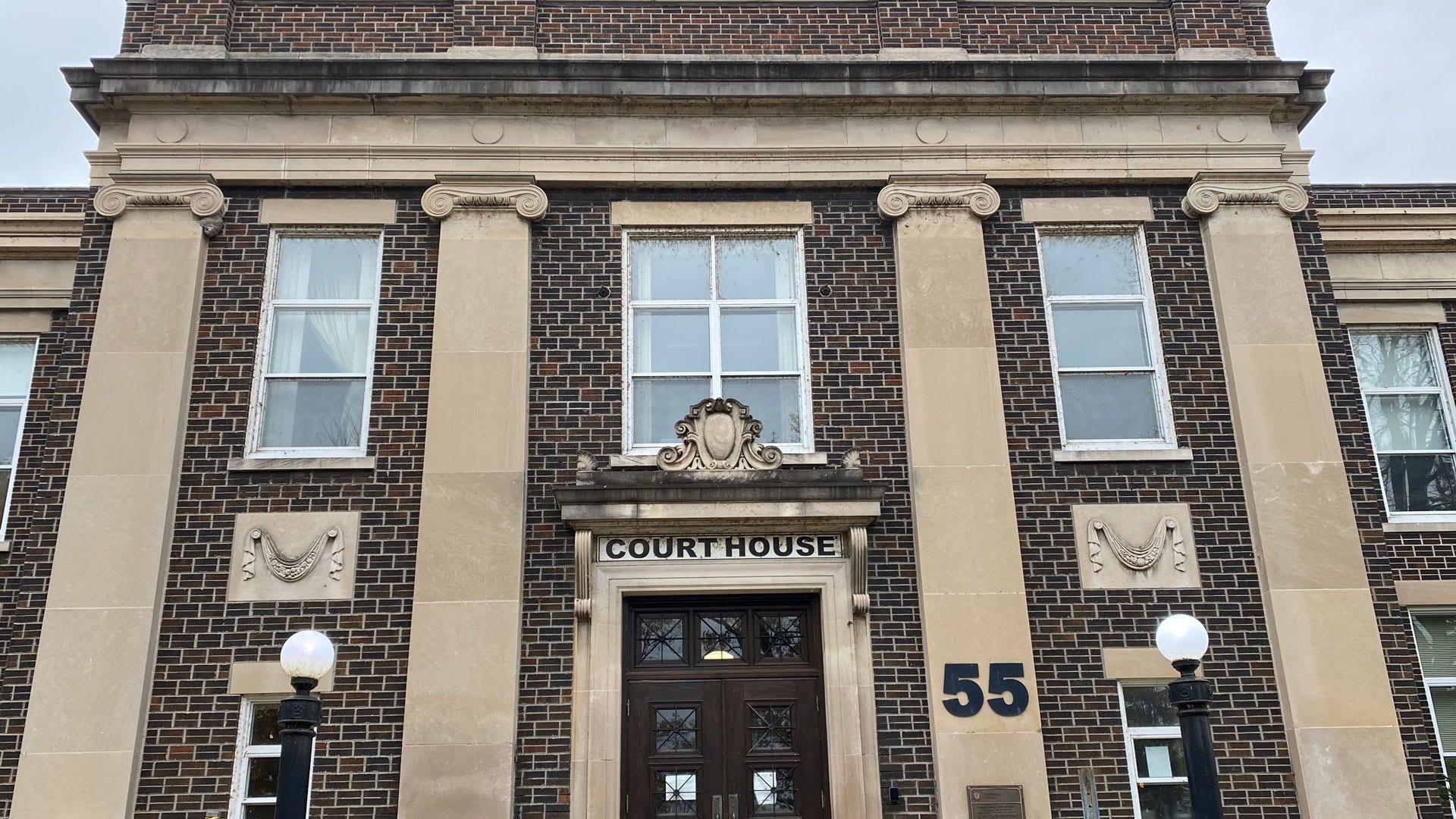
Foxgate recently cancelled the proposed 218-home subdivision, which was celebrated by the camp as a hard-fought victory.
“To be celebrating these incremental wins when we get a chance to, it’s vitally important,” occupation spokesperson Skyler Williams recently told APTN. “This is certainly just the foot of the mountain in terms of the work that needs to be done. This is a generational struggle.”
And it’s a struggle sure to continue. For many in both Caledonia and Six Nations, it may feel like history is repeating itself.
Foxgate’s lawsuit seeks a declaration from the courts that it has good title unencumbered by any land claim, $200 million from governments and $20 million from Williams and several others.
In 2006, the OPP spent tens of millions policing the Kanonhstaton occupation. The province paid $20 million to settle a class action similar to the one currently before the court. Ontario settled out of court with two Caledonia residents whose civil suit was similar to the one filed in March.
Ontario bought the disputed parcel from developer Henco Industries in 2006. Fifteen years later, Kanonhstaton remains in legal limbo, subject to Haudenosaunee sovereignty but owned by Ontario and held in trust until a solution is negotiated.
Ontario declined to comment on matters before the court and didn’t answer when asked if a meeting ever happened. A spokesperson said the province remains willing to participate in Ottawa’s proposed talks.
The McKenzie Meadows project was supposed to eventually comprise more than 100 acres. The cancelled portion was just phase one. But traditional Six Nations chiefs have reiterated their moratorium on development of disputed land.
Losani Homes vice president William Liske said in an email that Foxgate couldn’t in good conscience continue to hold homebuyer deposits with no end to the occupation in sight. He said Foxgate is currently processing deposit returns.
“Foxgate is the holder of title to the property in the Ontario land titles system, but it has been divested of possession,” said Liske. “Without government intervention at some point I don’t see that division being sustainable.”
And what’s been the response from government so far? “We did reach out a few times to both levels of government,” Liske wrote.
“We didn’t receive any meaningful response.”
Six Nations elected council did not offer any comment when contacted.
Read the briefing note:






